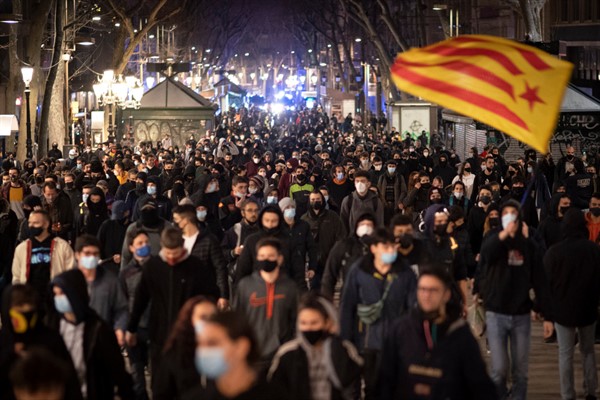The arrest of the Spanish rapper known as Pablo Hasel in February sparked violent protests in his native Catalonia, but also across Spain. Judging from international news coverage, Spain’s young people had erupted in anger over a lack of free speech in the country, 46 years after its post-dictatorship transition to democracy. A closer look, however, reveals a more complex story about how the Catalan independence movement drove these protests, as well as a more nuanced debate about European versus American concepts of free speech, even as Spain forges ahead with an already-promised reform to its free speech law.
The February arrest was hardly Hasel’s first brush with the law governing freedom of expression. He received a two-year prison sentence in March 2015 for praising attacks by terrorist groups, such as the now-defunct Basque separatist group ETA and al-Qaida. He was also convicted of assaulting a journalist in 2016, though he received suspended sentences each time.
In March 2018, he was again sentenced to two years in prison for glorifying terrorism, as well as fines totaling around 25,000 euros for insults, libel and slander aimed at former King Juan Carlos and the police, via 64 tweets and a song he shared on YouTube. This two-year sentence was later reduced to 9 months and a day because it was determined that his Twitter messages did “not pose a real risk” to anyone. But his subsequent petition to have it suspended altogether was turned down by the court, which stated, “Neither the convict’s personal circumstances, nor the nature of the facts, nor his behavior make him deserving of such a benefit.”

